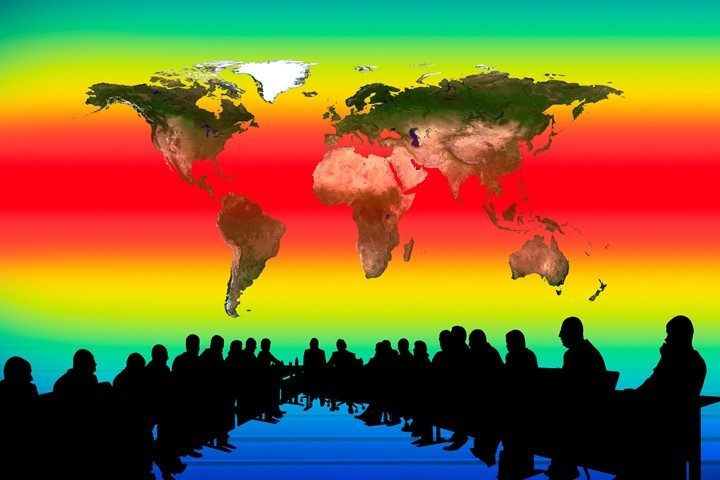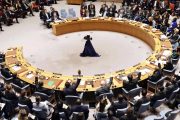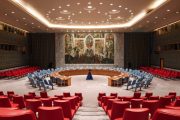
If so-called climate change is really an “emergency,” why are so many world leaders continuing to avoid meeting in-person to discuss what the world needs to do about it?
U.K. Prime Minister Boris Johnson is increasingly finding himself alone in insisting that COP26, the 2021 UN Climate Change Conference, take place in-person, as scheduled, in November in Glasgow, Scotland, rather than postponing it for yet another year owing to a fear of the spread of COVID-19. Many believe that another postponement is imminent, with one diplomatic source reportedly telling the Sun, “No one in Europe thinks it’s going to happen and the U.S. are increasingly skeptical it can happen without a delay.”
Amid increasing calls to delay COP26 until the coronavirus is under better control, U.K. officials insist that there has been no decision to cancel or postpone the in-person conference for this year. A Downing Street spokesman insists that — for now — the conference is still on. “We are not looking to postpone the summit,” the spokesman said. “We are working on the basis of COP26 being held in person this November, while closely monitoring the covid situation. The summit team is working closely with all partners and exploring what different scenarios might mean for COP26 and how we can plan for that, whilst putting the health of the participants and the local community first.”
Yet, the calls to postpone the conference are becoming hard to ignore. Even high-school dropout and climate activist Greta Thunberg proclaims that she plans to skip the event, blaming her decision, at least in part, on “vaccine nationalism.”
“Of course I would love to attend the Glasgow COP26. But not unless everyone can take part on the same terms,” Thunberg wrote on Twitter, adding, “Inequality and climate injustice is already the heart of the climate crisis. If people can’t get vaccinated and travel to be represented equally that’s undemocratic and would worsen the problem.” And, of course, no true climate-change conference can happen without young Greta’s presence.
Former UN climate chief Yvo de Boer, who was previously in charge of UN climate discussions, claimed that a delay would be preferable to “messing it up.” Said de Boer:
I think a hybrid [conference] whereby you have the high-level ministerial segments in person and the rest virtual, that might work. But can you cover all the ground that needs to be covered in a virtual meeting, given the fact that, generally, the process relies very heavily on bi-lateral meetings and backroom deals? My overall sense is that delay is better than messing it up, overplaying your hand, and having a failed meeting.
On April 15, participants agreed to hold preliminary talks online as a way to “advance the extensive work that needs to be addressed” prior to the actual summit. The decision came as a result of a meeting of the COP Bureau — a decision-making group made up of the UN, as well as representatives from the U.K. and other countries, and the summit’s co-host.
In a statement from the COP Bureau released yesterday, the group declared that the preliminary online talks would be “committed to ensuring that the meeting is inclusive and transparent,” and will pay “special attention to scheduling meetings to accommodate different time zones across the globe.”
“The secretariat will continue to provide support to ensure the full and effective participation, in a fair and inclusive manner, of all parties.” This support will include “logistical and connectivity needs for participants, as needed,” according to the COP Bureau.
Alok Sharma, current COP president and a member of the U.K. parliament, expressed doubts about holding such talks online and has said that there are “valid concerns about virtual work.” At the same time, he lamented that “we cannot afford to put formal work on hold.” But according to Sharma, any agreements need to be made “in person in Glasgow to ensure COP26 delivers on its mandates and what the world expects of us.”
Some believe that the push to postpone this year’s climate summit is a form of punishment for Prime Minister Johnson, who many climate alarmists believe is far too chummy with industrial carbon emitters. Peter Newell, a professor of international relations at the University of Sussex, recently said, “We are never going have change while these actors are so close to government. The government is not willing to take on these interests, as it has close ties to big industries, including fossil fuels…. We have to disrupt that cozy relationship between business and government.”
The COVID pandemic is being used as a pretext to not have the meeting, but, meanwhile, sports leagues around the world are competing again, with fans allowed in venues in many circumstances. Even the summer Olympic Games are scheduled to be held in Tokyo in July. Certainly, with such an important topic as climate change on the table, the UN, and the nearly 200 governments involved, could find some way to meet safely.
Or maybe there’s some other reason they don’t wish to meet.




